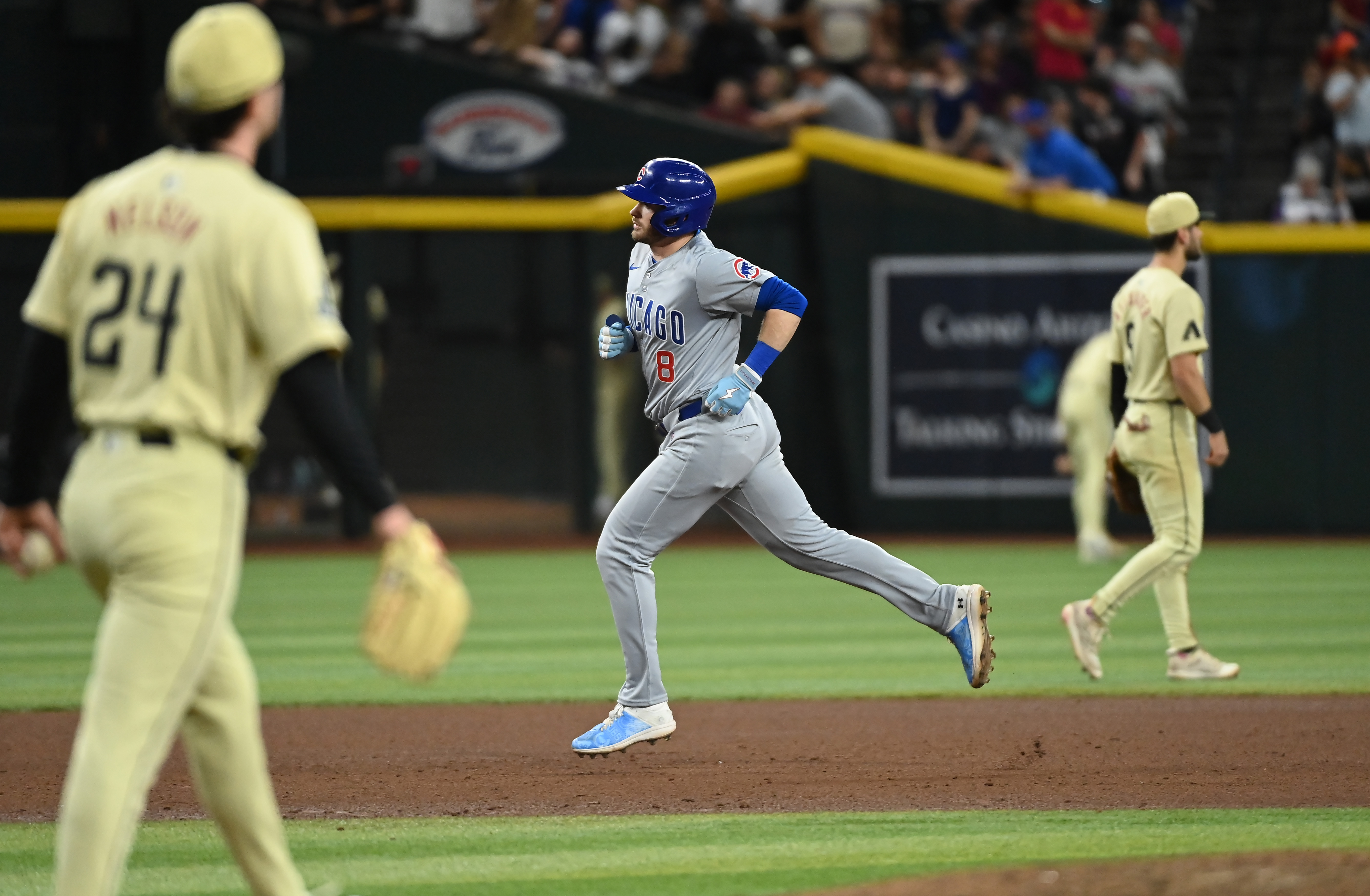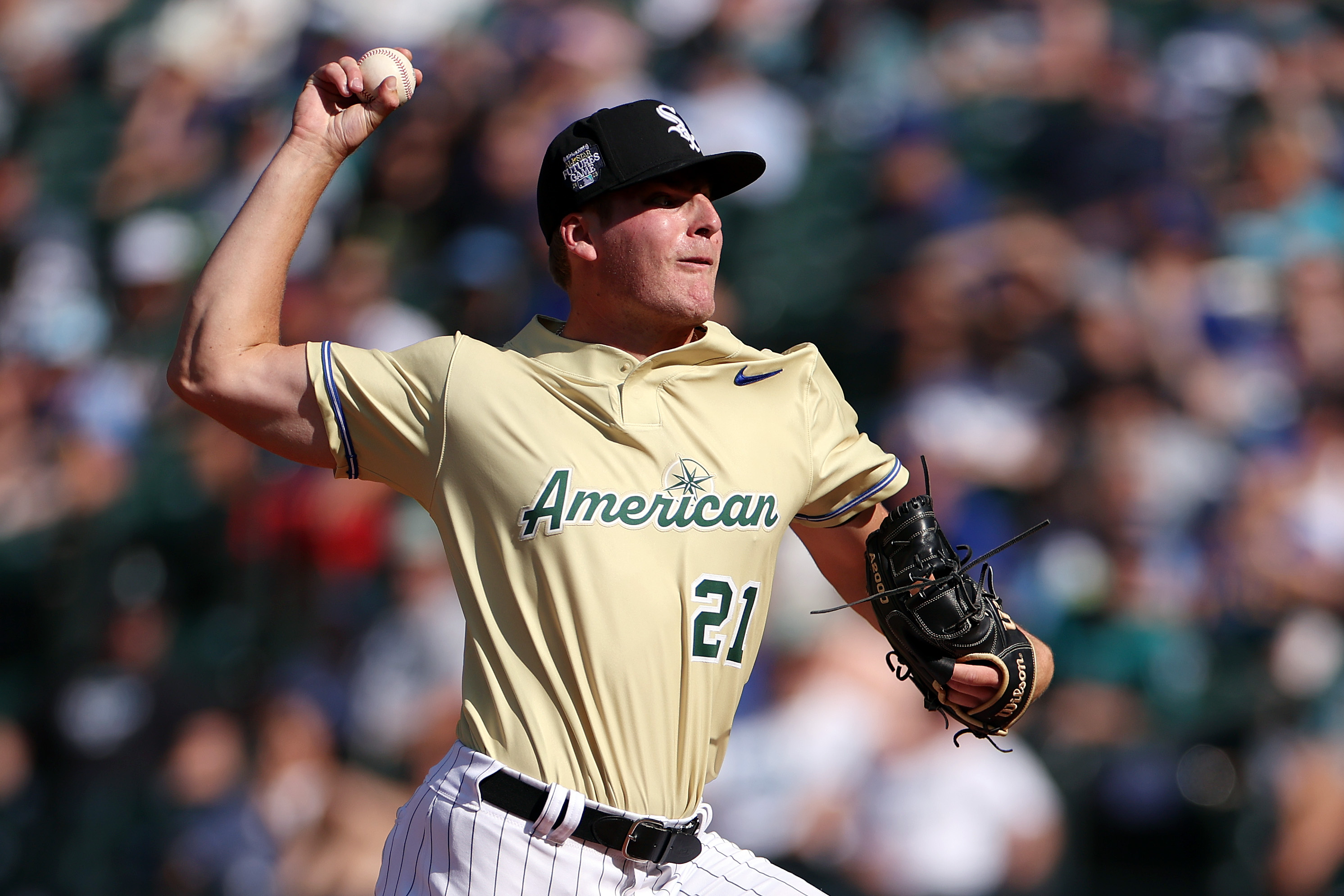
Catch Part 1 of Inside Look: Harold Baines in the video above, as well as Parts 2 and 3 in the videos below.
In a Chicago sports landscape that has exalted many kings over the last 40 years for their flashy styles and loud bravados, this is one legendary athlete who chose a different route.
A silent type from a small Maryland town, Harold Baines was never interested in the noise of our large, roaring metropolis. Staying true to himself, he wanted his actions — not his words — to speak to the masses.
Which is why the White Sox icon is beloved by those who saw him play — and a stranger to many who didn’t.
“It's all about your personality. That wasn't my personality,” sais Baines in an interview for “Inside Look: Harold Baines,” which debuts on CSN on Wednesday at 8 p.m. “Ron Kittle had a personality and it worked for him. But I knew what worked for me. Be focused on what I had to do on that particular day and when that day was over I concentrated on what I had to do the next day.”
[WATCH: Inside Look past episodes]
MLB
The prime of Baines' career (1982-1987) had some serious competition for attention in Chicago, contending not only with Michael Jordan, but the 1985 Super Bowl champion Bears and their rock star cast of characters: Jim McMahon, William Perry, Mike Ditka, Walter Payton, Dan Hampton, Steve McMichael, etc.
But while those dynamic entertainers were grabbing the headlines and endorsements, Baines just kept being Baines, refusing to change.
“Because that's who I am. I don't believe in fakeness,” Baines said about the soft demeanor that’s been cemented deep in his underbelly since his birth 56 years ago. “I go back to how I was raised. We were raised to just get the job done and go onto the next task, and that's what I did. Good or bad I knew how to move onto the next day. If I went 0-for-4 or 4-for-4, I didn't change my approach or personality.”
The best hitter on the 1983 White Sox who won 99 games on their way to the American League West Division title, Baines drove in Julio Cruz in the bottom of the ninth inning to clinch the first postseason berth in Chicago on either side of town in 24 years.
In an unforgettable scene of sheer bedlam, White Sox fans stormed the field after Cruz crossed home plate. White Sox play-by-play announcer Don Drysdale described it as “Pandemonium at Comiskey Park.” It’s one of the greatest moments in the history of Chicago sports. Think Disco Demolition, but this actually celebrated an athletic achievement, not the end of the Bee Gees.
However, unless you were old enough to see Baines game-winning, division-clinching RBI, most have never even heard about it.
Maybe because the man responsible for making it happen isn’t shouting from the rooftops reminding everyone about the biggest play of his illustrious career.
“That was probably my most fun time I ever had on a baseball field,” said Baines in possibly the most grandiose statement he’s ever made.
Ask him what he remembers about the sac-fly RBI that ended the two-decade playoff drought that nearly caused a riot at 35th and Shields, and here’s what he says:
“It was a slider and I hit a fly ball to center. Just trying to get the ball in the air.”
Period.
Ask him to describe the emotion he was feeling when he saw Cruz cross home plate with the winning run, and you get this:
“There wasn't any emotion. I'm emotional about my kids, but baseball I'm not emotional about because I took it as a job. Although once we got in the locker room and had the champagne and all that, it was a little different.”
For Baines, that probably meant a wider smile and maybe a couple sentences with exclamation points. He couldn’t celebrate for too long.
The White Sox had a game the next afternoon. Baines, of course, homered that following day in the second inning. The Sox won 6-0 in front of over 40,000 fans.
My dad and I happened to be in the crowd for that game. He randomly bought the tickets months in advance. Talk about bad timing. We missed the clinching game by one measly day.
[MORE SOX DRAWER: Nate Jones' extraordinary journey back to the mound]
The loudest sound Harold made during his playing career came from the thousands of White Sox fans who used to shout his name. The Comiskey Park scoreboard would flash “Har-old” in bright lights when he came to the plate. It became an anthem that followed him wherever he went.
“I still hear it actually. I still hear people say that,” Baines says about the ‘Har-old’ chant. “(Former Minnesota Twins infielder) Ron Washington said they used to say that coming in on the bus when they came to play the White Sox. That means I did something right.”
In fact, Baines did so many things right during his career it’s a travesty that he never got more than six percent of the vote to get into the Hall of Fame. Seventy-five percent is needed for induction.
There’s a compelling argument that he deserves to be in Cooperstown already.
When the six-time All-Star retired from baseball in 2001, he had the 10th most RBIs (1628) in American League history. More than Hall of Famers George Brett, Harmon Killebrew, Al Kaline, Jim Rice, plus National League HOFers like Mike Schmidt, Andre Dawson, Willie McCovey and many others.
Baines has the most RBIs by any eligible player not inducted into the Hall.
You know how many great players shrivel up in the playoffs? Not Baines. He batted .324 in 31 post-season games, topping the .350 mark in five separate series with five homers (all five coming in consecutive playoff series).
In a sport where there are so many injuries over the course of a grueling 162-game schedule, longevity should not be understated. When Baines retired, he had played the seventh most games in AL history (2,830) and holds the major league record for most years between 100 RBI seasons. He did it in 1985 and again in 1999 — when he was 40!
But the critics point to the fact that he was 134 hits shy of 3,000, he never dominated an offensive category and most of all — because of knee problems, he spent a large portion of his career as a designated hitter, 58 percent of his games played.
If there’s a topic for Baines that comes close to rattling his cage, it’s the Hall of Fame snub.
“My numbers are as good as some in the Hall of Fame, but from what they tell me, the DH isn’t a position," he said. "They don’t respect the DH slot at all. You have to ask the writers because it is definitely a part of the game — the AL anyway. The position that I played is not respected throughout baseball. If Edgar (Martinez) gets in or Big Papi (David Ortiz) gets in, then it might change. You always have to have a first. Once you get a first, hopefully the doors will open.”
What would it mean?
“I have no idea until it happens. The main point is, hopefully I'm alive. That's the most important thing, to share it with the people who really care about me and who I care about,” Baines said. “People die and then get in, which I don't understand. He's good one year to make it but not the other year? That's the part of voting that I don't understand. But I didn't play the game to try to get into the Hall of Fame. I played to provide a future for my family and to get a World Series ring.”
He mentions his family. Baines has two of them. There’s the White Sox, who he’s given his blood and sweat. Then there’s his family. He saves his tears for them.
What makes Harold Baines cry?
“When I'm around them and I have to talk about them,” he said of his wife, Marla, and their four kids.
Over the course of the next year, the man who never wanted to go near a microphone will be holding one at three of their weddings.
“I’m getting my speeches ready.”
He’s thinking what to say about them without choking up, which might be a lost cause since it will expose the well of emotion hidden on Harold’s insides.
What would his four children say about their father?
“Quiet, but very dedicated about what he does, and they are too,” Baines said. “Hopefully I was a good role model. I have four kids who have graduated from college. Four kids with masters degrees. I'm more proud of that than anything I've ever done.”
They had a great dad who paved the way.
In a world of so much talk and buzz, Baines always went against the grain, keeping his words to a minimum. Despite playing in a park with an exploding scoreboard, he ran around the bases as if in a silent movie.
He might not have been the shiniest star, but when you saw it, you never forgot it.
That is Harold Baines.


